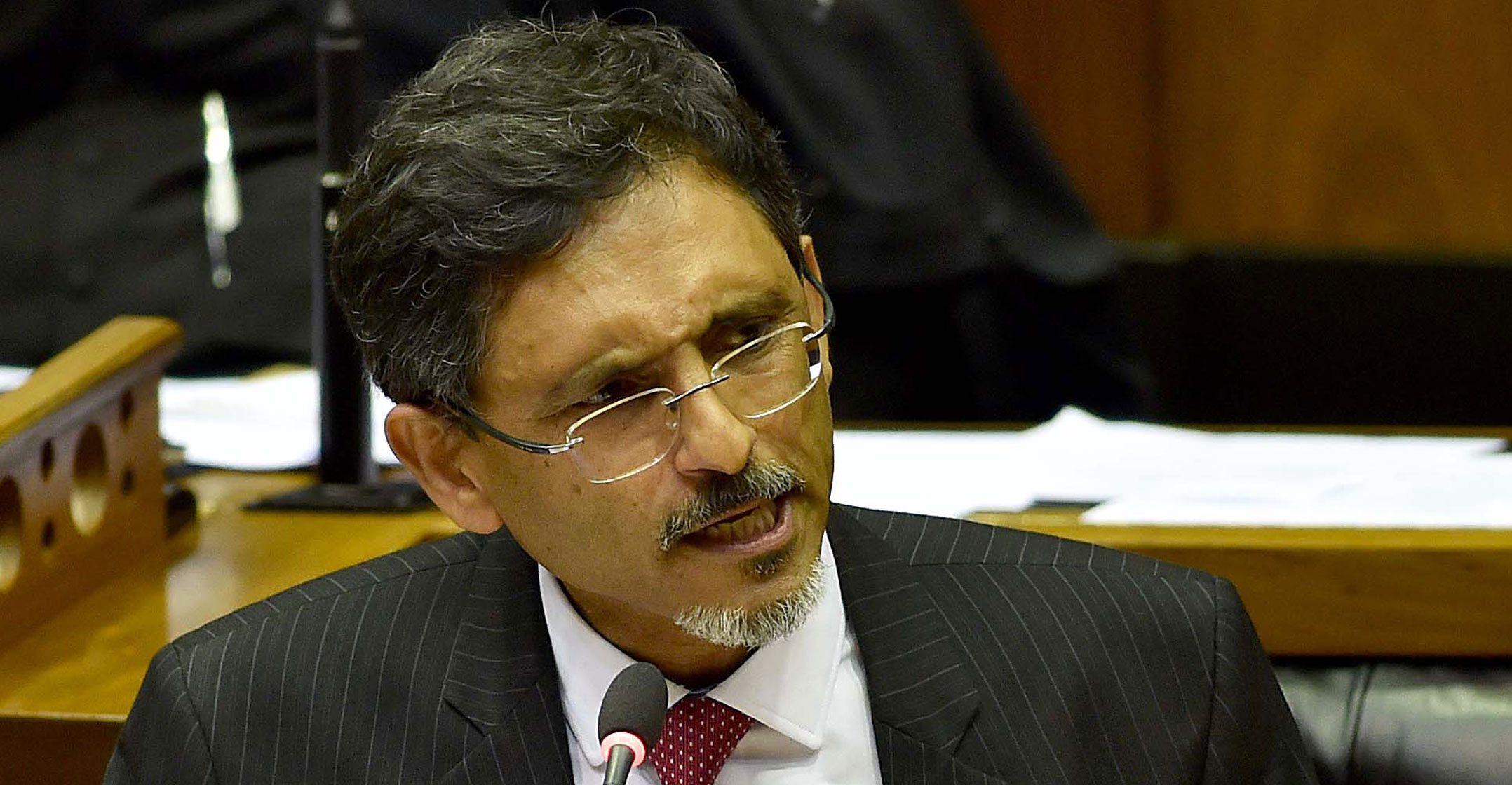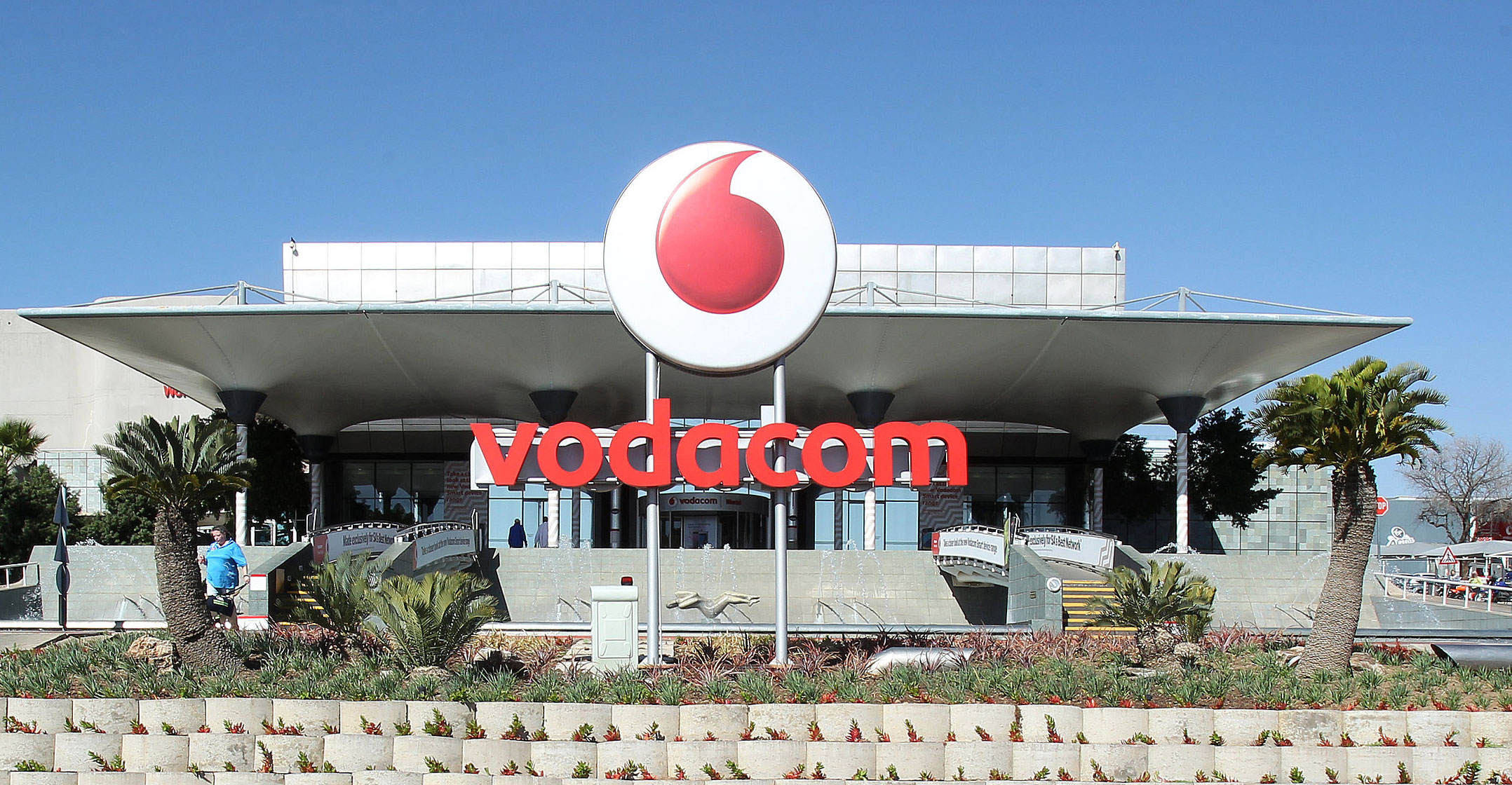
Ahead of publication of the Competition Commission’s final report flowing from its inquiry in the data services market, expected later on Monday, TechCentral republishes this column from editor Duncan McLeod. Originally posted in April, following the publication of the commission’s provisional findings, it warns against excessive intervention in the sector.
Ah, that old trope, “market failure”. Economic development minister Ebrahim Patel trotted it out several times during a press conference in Pretoria on Wednesday, where he was on hand to help unveil the Competition Commission’s provisional findings from its inquiry into the data services market.
Intervention is needed, he said, to address “market failure” in the mobile data sector. The commission released a range of “recommendations” – both “immediate” and “intermediate” – to address concerns over high data prices.
It’s clear that the commission is looking to use a big regulatory stick on the industry to deal with problems – problems that are mostly of government’s own creation. There hasn’t been market failure, as Patel repeatedly insisted – rather, the reasons for South Africa’s relatively high data prices are policy related (not introducing sufficient competition in the mobile industry early on, for example), coupled with political interference and bungling over important projects such as digital migration and spectrum allocation.
There hasn’t been market failure… The reasons for South Africa’s relatively high data prices are policy related
I’m not suggesting for a moment that the industry itself shouldn’t shoulder some of the blame – they were dragged kicking and screaming by communications regulator Icasa into introducing more consumer-friendly business models, like not taking advantage of excessive out-of-bundle data fees – but they have been behaving (mostly) logically in seeking to maximise returns for their shareholders while ensuring they have sustainable, long-term businesses. This, after all, is their mandate and in a competitive market, the benefits should flow through to consumers.
Let’s overlook the fact that the commission’s report was released exactly two weeks to the day before South Africans go to the polls – no doubt it was carefully timed to show government is dealing with the hot-button topic of data prices – and interrogate what exactly the commission is proposing.
Immediate relief
Firstly, it wants immediate relief on data pricing. Measures it has proposed include urgently assigning radio frequency spectrum – sensible, of course, but something that is long overdue. It’s scandalous that operators still haven’t been assigned spectrum to build 4G/LTE networks, forcing them to squeeze their 2G and 3G assignments to roll out 4G. They’ve also had to densify their networks in urban areas, at great cost, to deal with this spectrum crunch. Government has spent years arguing why they shouldn’t get this spectrum (or only get a small chunk of it), instead wanting to create something of a new infrastructure wholesale monopoly in the form of a “Woan”.
The bureaucrats at the department of telecommunications & postal services got it into their heads that South Africa didn’t need infrastructure competition, and that service-based competition should be amplified instead. They doubled down at that position before finally conceding – albeit it grudgingly – that commercial operators should, after all, be given spectrum (they just shouldn’t expect too much of it). The Woan idea hasn’t been scrapped, though, and may still form a cornerstone of the Electronic Communications Amendment Bill when the draft legislation, which was withdrawn earlier this year, is reintroduced into parliament some time after the election.
Thankfully, the existing legislation empowers Icasa to go ahead with a spectrum licensing process, and communications minister Stella Ndabeni-Abrahams is set to finalise a policy direction to the regulator in the coming days (she’s promised to publish it by 30 April). Let’s hope that document doesn’t try to do anything too silly, though I’m not holding my breath.

Then there’s the digital migration project, which has stalled for years as government appears incapable of getting the work done. There are reams of copy on this website and elsewhere about the reasons for this, and I won’t rehash them here, except to say that without the release of spectrum now being used by the broadcasters – the “digital dividend” bands – it will be difficult to expand rural 4G coverage at a reasonable cost and provide more robust connectivity in urban areas. After building up a head of steam last year, it’s disturbing that the migration project appears to have slowed to a crawl.
In its report, the Competition Commission says Icasa’s objective in awarding spectrum should be to improve affordability and enhance competition. That’s fair enough, and a good objective. It then says any assignment to operators “should be contingent upon obligations to pass through cost reductions from their greater spectrum access, alongside obligations to improve affordable access”. Here, the wording in the final report will be key. The best way of driving down prices is by allowing the market to do so, not by setting targets for price reductions.
Imposing pricing targets could distort the market. The commission also mooted the idea of forcing the operators to provide free public Wi-Fi in certain areas or extend fibre into underserviced places. The operators probably won’t object to this, provided the requirements aren’t too onerous.
What’s more troubling is the commission’s proposal to include spectrum caps on larger operators and to impose asymmetric assignments and set-asides for new entrants such as the Woan. This is problematic because telecoms requires deep pockets. Like it or not, it’s the incumbents that have the balance sheets needed to take full advantage of spectrum. Starving Vodacom and MTN, for example, of spectrum, while granting large tracts of the stuff to unproven operators may sound good on paper as a way of opening the market, but will it really improve competition if the new entrants don’t have the wherewithal to take advantage of what they’re given? A policy environment where there is free spectrum trading – perhaps within certain limits and with strict use-it-or-lose-it rules – is likely to have a more beneficial outcome given the free market will be left to determine how spectrum assets are more efficiently utilised.
‘Cost-orientated pricing’
The commission also wants the list of so-called “essential facilities” to be extended to include ducts and poles at “cost-orientated pricing” to help smaller players. Again, this makes sense at first glance, but it’s important to interrogate what impact this might have on investment by the bigger players if they feel they won’t be adequately compensated for taking a risk in deploying such infrastructure. Why would you build a network if your competitor can get cheap and easy access to it, too?
The commission appears to want to encourage the industry to lower costs for consumers, threatening that if they don’t do so, it will introduce draconian rules, including clawing apart Vodacom and MTN (“accounting and/or functional separation” is the regulatory parlance for this).
For example, it wants a commitment by mobile operators that they will reduce headline tariffs to the effective level of charges inclusive of occasional free data and promotions, which will ensure lower average rates are available to all subscribers all the time. This will create greater price transparency, the commission argues, and will promote price-based competition.
 It also wants the operators to reduce the price of sub-1GB bundles to “within an objectively justifiable and socially defensible range of the 1GB price, provisionally a maximum of 25% higher on a per-megabyte basis”. This, it says, will “provide immediate relief to lower-income consumers using smaller data packages”. Again, perhaps fine on paper, and clearly an attempt to nudge the operators in a certain direction, but any attempt to enforce such rules could result in unintended consequences (the real peril of trying of trying to interfere in highly complex business models).
It also wants the operators to reduce the price of sub-1GB bundles to “within an objectively justifiable and socially defensible range of the 1GB price, provisionally a maximum of 25% higher on a per-megabyte basis”. This, it says, will “provide immediate relief to lower-income consumers using smaller data packages”. Again, perhaps fine on paper, and clearly an attempt to nudge the operators in a certain direction, but any attempt to enforce such rules could result in unintended consequences (the real peril of trying of trying to interfere in highly complex business models).
On its longer-term proposed interventions, the commission wants to encourage operators to deploy infrastructure in lower-income areas and smaller secondary cities and towns. South Africa is not alone in this goal, with many regulators around the world imposing conditions on licensees to achieve this. There are many approaches, though the German model of requiring operators that were granted 4G spectrum to cover rural areas before they built in the cities has apparently worked quite well. Of course, they shouldn’t then also be expected to pay top dollar for the spectrum.
The commission has recommended in its provisional report that regulatory action may be needed at the wholesale level if there are no “voluntary commitments to improve the terms of wholesale access”.
Specifically, national roaming agreements with smaller networks need to move toward more “cost-orientated pricing levels to support he ability of these smaller networks to be more aggressive on price without incurring losses on the roaming side, while using roaming as a means to expand capacity to still deliver a high-quality data service to new subscribers”. That seems rational, it wouldn’t be wise for the commission to attempt to set wholesale prices.
Contentious
Perhaps the most contentious of the proposals is that “some form” of functional and/or accounting separation may need to be enforced on the big mobile operators (read: Vodacom and MTN). The commission is clearly pleased with a similar arrangement it reached in an out-of-court settlement with Telkom, which appears to have benefited consumers. An important point here, however, is that Telkom (eventually) willingly went along with the plan – it’s not clear whether Vodacom and MTN will be as amenable, and if they’re not, will they drag it out through litigation for years to come? What then?
The idea, as I understand it, is to separate the wholesale and retail divisions of the operators to encourage the wholesale arm to work in a non-discriminatory and transparent way with other retail service providers. It’s a model that’s been imposed on fixed-line incumbents around the world to varying degrees of success. Whether it’s warranted in mobile, where there is at least some degree of infrastructure competition already, is open to debate. Perhaps it’s best addressed as part of a spectrum licensing process, as Icasa has already previously proposed – it had wanted the operators to agree to work with new mobile virtual network operators to be guaranteed access to additional spectrum.

It must be emphasised that the commission’s report is still provisional. Operators and other interested stakeholders have until mid-June to respond in writing to the initial report, after which there will be further consultations. On first reading of the summary of the report, though, there is still much analysis and work the commission needs to do. There’s no doubt there are interventions that will help drive down the cost of mobile data in South Africa – most of which need to be dealt with through changes to policy rather than imposing more heavy-handed regulation.
What the commission needs to avoid doing as it readies its final report is succumbing to political pressure for populist interventions that could undermine investment in a successful industry. A good place to start might be to admit that failures in the sector are not, in the main, the result of the market, as minister Patel contends, but rather policy positions and government bungling that have impeded the development of an efficient, competitive sector. — (c) 2019 NewsCentral Media
- Duncan McLeod is editor of TechCentral
- This column was originally published on 25 April 2019

